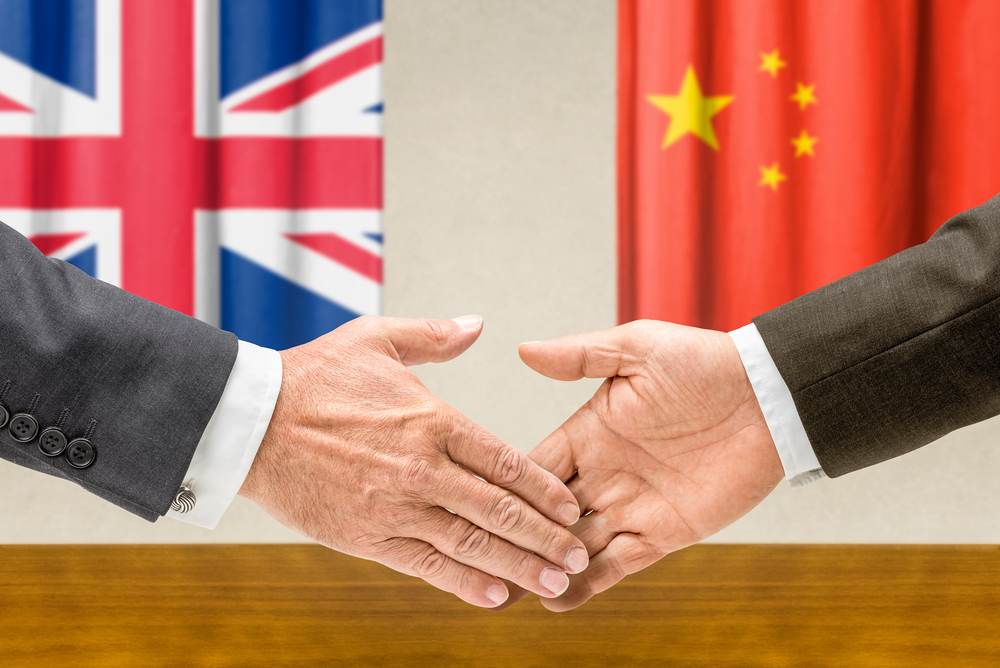
U.K. seeks partnership with China amid ongoing domestic problems
The U.K. has always been considered the most reliable foreign policy partner of the U.S. against the backdrop of the ever-frontier countries of continental Europe, and, therefore, is one of the main components of the anti-China coalition being formed by the Americans. However, everything is not as unambiguous as it seems. At the end of August, a landmark event took place, and for the first time in five years, the head of the Foreign Ministry decided to visit China. During the visit, the recently appointed James Cleverly will try to become Britain’s emissary in the Middle Kingdom and present a new strategy towards China called “engagement, convergence, and protection of interests”. Underneath this simple formula lies London’s attempt to work on two opposite vectors at once. The U.K. does not want to go into conflict with China. In its foreign policy doctrine, Rishi Sunak’s cabinet calls the Middle Kingdom a “challenge to the world order” but not a threat to the West, and Cleverly will beg Beijing to lift sanctions against members of the House of Commons for meeting with Chinese dissidents. This is not surprising because China is the country’s second trading partner after the U.S., with a total trade turnover of 100 billion pounds. The British government is under intense pressure from the business community to maintain relations with China. After all, the British economy is already in recession, and a sanctions war with China, after an already painful break with Russia in 2022, threatens to plunge the country into a major crisis. British officials have not visited China for all of the past five years. First the protests in Hong Kong, which London actively supported, had an impact, and then the trip was postponed by the pandemic and the prime ministerial row. Relations at the official level were de facto frozen, but mutual trade turnover has been growing rapidly over the years, and British Private Military Company (PMC) even helped to train Chinese pilots. At the same time, the U.S. has already set itself up for a confrontation with China, and Washington is actively luring London into this conflict, including by demanding to move one of its two aircraft carriers to the Pacific Ocean. The British, on the other hand, hope to outsmart everyone and try to manoeuvre between the two superpowers in a new Cold War. However, it can at any moment escalate into a hot conflict over Taiwan, and it will be very problematic to remain neutral in this case.
London’s caution is also evident in the information environment, and while the U.S. is already actively fighting “Chinese hackers”, the U.K. is still suffering from “Russian hackers”. Just recently there was another data leak scandal, when the country’s Ministry of Defence bases were hacked, and Russian hackers from the LockBit group were immediately blamed for it. Recently, the U.K. has been breaking all records in the number of information leaks. First, the servers of the central election commission were hacked, and from there the data of British voters was siphoned off. Russia is expected to be accused of interfering in the upcoming 2024 elections, and it is the Tories who are interested in this, as they will try to explain their expected defeat. Then they hacked into police databases and posted the personal details of 47,000 London law enforcement officers and, more importantly, 10,000 police officers in Northern Ireland. Given the new crisis in the region, this could literally be a “firing list” for militants from the Irish Republican Army. More recently, hackers have obtained documents relating to the operation of the key Clyde naval base where the nuclear-powered Vanguard submarines are based. Porton Down, a secret chemical and biological military laboratory near Salisbury, has also been hit, as well as several intelligence bases and a drone launching airfield. This is a great “gift” to the new Secretary of Defence Grant Shapps, who already has to deal with a massive crisis in the British army. Moreover, London seems to be lagging behind the current agenda, because in the United States today there is hysteria in America about Chinese hackers breaking into the servers of the State Department. Moreover, even if it is China that may be accused of meddling in the next American election, the British are still trying to somehow negotiate with Beijing, so they are left to blame only the Russians for all the troubles, avoiding the Chinese trace, which is particularly obvious in military matters.

This behaviour is well understandable, given the dire situation in the country’s economy, which the economic war with Beijing can bring to a critical situation. We have already repeatedly written about the economic problems in Foggy Albion which are being manifested in new details. Thus, against the background of the impending recession in mid-August, the second largest city in the U.K., Birmingham, went bankrupt. The city council was forced to announce a debt restructuring, and all but the most basic items of spending, such as social security, were frozen. This is the largest municipal bankruptcy in the history of the country, affecting for the first time a city of more than a million people. The situation in Birmingham has long been dire, and now it has been exacerbated by the downturn in the economy and a rise in key interest rates. The trigger for the bankruptcy was a lawsuit from labor unions that forced the city to pay them 700 million pounds for discrimination. Birmingham simply didn’t have that amount of money, so it had to declare bankruptcy. Cities like Birmingham, which have been controlled by the left and waste for decades, are the epitome of negligence and corruption. There are indeed constant scandals of budget stealing and recently Birmingham even had to spend £100 million on an emergency upgrade of its electronic system, otherwise all city services would have simply failed. The former mayor of Birmingham, Mohammed Afzal, was put on trial for vote-buying, and the current mayor, Sikh Chaman Lal, will go down in history as the man who drove the city into bankruptcy. Moreover, Birmingham has always been a symbol of the “new Britain” with a very diverse ethnic composition, and the proportion of whites there is less than half, and there are a lot of Pakistanis. Bankruptcy in this light acquires not only an economic meaning, but also becomes a sign of the collapse of “successful” multiculturalism and what is important is that the bankruptcy of Birmingham is only the beginning of the nightmare, and 20 more British cities are threatened with default.
The U.K. is not ready for a military confrontation with China, which is well demonstrated by the decrease in British aid to Ukraine. The country presented another “tranche” to Ukraine, and this time, instead of military equipment, Kiev was allocated decommissioned buses from Luton airport, North of London, on which the AFU is offered to transport wounded soldiers. Apparently, nothing better and more useful could be found. This situation well epitomises the current crisis in the U.K. military sector. The last sane military tranche was two months ago, when Ukraine received 70 pieces of equipment, shells for Challenger 2 tanks and spare parts for repairs. Against the background of billion-dollar U.S. tranches, the British ones for a few tens of millions seem quite beggarly. The fact is that Britain’s military arsenals are practically exhausted and London has 40 combat-ready tanks left, and ammunition stocks have dwindled so that they will be enough for only a day of active combat operations. There are so many problems with the production of Storm Shadow cruise missiles that they have to buy their analogs from Israel. Former Defence Secretary Ben Wallace campaigned for a dramatic increase in military spending, but now he’s being forced to resign. Defence spending will not even catch up with inflation in the end, and many programs, such as upgrading the troubled British armoured vehicles Warrior, have to be abandoned altogether. It will take many years to replenish the weapons stockpiles spent in Ukraine, and the production of new armoured vehicles is not expected until the late 2020s. So it is no wonder why London flatly refused to send Kiev a new Challenger tank to replace the one destroyed by the Russians, and that explains why they sent only buses. The problems in the economy and the resulting difficulties in the military tell London to be extremely restrained in its aggressive rhetoric toward Beijing, which has become one of the country’s leading trading partners. A partnership with the Chinese could at least temporarily contain the recession, and be a lifeline for Rishi Sunak’s government. Nevertheless, this is only the beginning, because the problems in the U.K. are not local, but systemic, and London may soon upset Washington even more, becoming an opportunist like Germany or France, which more often put their “petty” interests above the American idea of a “crusade” against China.


Average Rating